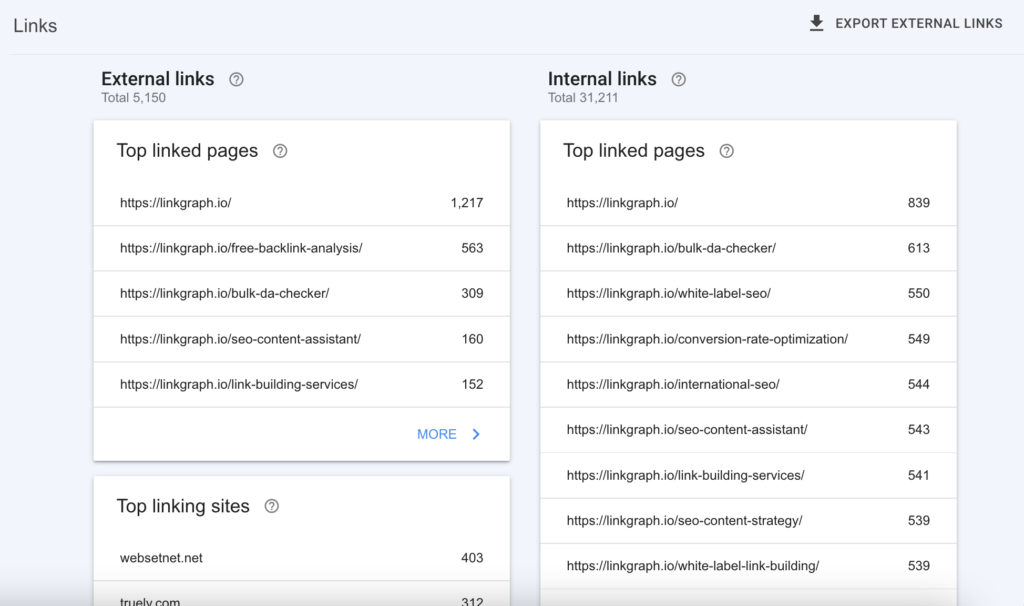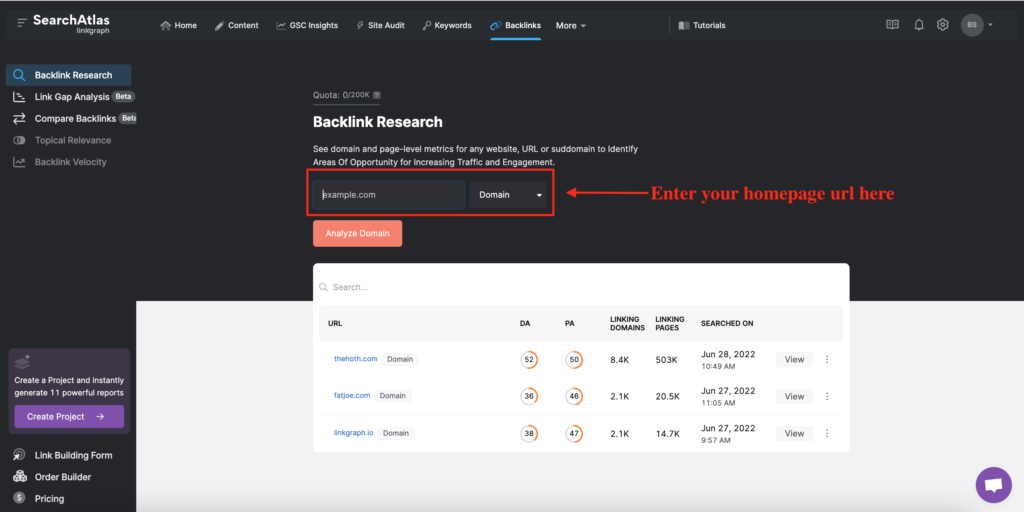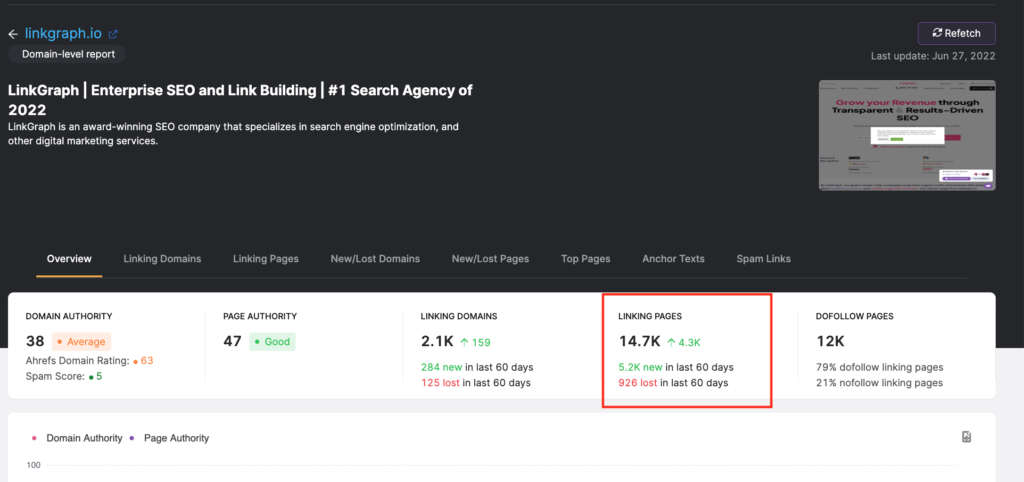What Are Backlinks and Why Do They Matter in SEO?
If you know anything about SEO, you have probably heard of the term “backlinks,” and know that they are important to SEO performance. But what exactly are […]
If you know anything about SEO, you have probably heard of the term “backlinks,” and know that they are important to SEO performance.
But what exactly are backlinks, and why are they so important for showing up in search results?
This guide to backlinks will cover everything you need to know about backlinks and SEO, so you can start earning more backlinks for your website and improving your organic traffic and SERP presence.
What are Backlinks?
A backlink is a link on a website that points to a different website. This backlink passes “link juice,” or link equity from the linking page to the linked page, helping improve its overall ranking potential.
Backlinks are generated when one website links to another, most often in the form of a hyperlink. Generally, the more backlinks that a web page has, the more likely it is to rank in search engine results. They are one of the most important components of off-page SEO, as they signal to search engines that other people on the internet find your content valuable.
You can think of a backlink as a reference for your website. The more backlinks in a website’s backlink profile, the more likely search engines will see that domain as reputable and trustworthy.
Why Do Backlinks Matter in SEO?
Backlinks are one of the most important factors in getting websites to rank higher on search engine results pages (SERPs). They play a big part in Google’s ranking algorithm because backlinks are the primary way search engines quantify the value and rank-worthiness of a web pages.
In addition, backlinks are important for SEO because they are the pathway that search engine crawlers use to crawl and index the internet. All of the pages you see in Google’s index were discovered via a link.
So if you want to gain a competitive advantage over businesses within your industry, for example, it’s essential to examine their backlink profile, which is a collection of pages and domains that link to their site. This gives you insight into the types of link-building campaigns that have helped them rank higher.
Backlinks vs. Other Types of Links
Links are a big part of web development, SEO, and how search engines crawl and index the internet.
A web page can have internal links (links to other pages on the same website) or external links (links to other websites). A web page can also have “inlinks” and “outlinks,” which are larger umbrella terms that encompass all of the links pointing to the page and away from the page, regardless of the domain that they are on.
External links are typically made to support a claim or an argument that’s been made in the content. It’s a great way to cite a source or recommend a product. Adding external links to any type of content helps add authenticity to the page.
Internal links are designed to help users navigate through the same website, discover relevant pages, and get additional information or answers to their questions. Internal linking also helps search engine crawlers discover new pages on a website.
Backlinks, however, should not be confused with these other types of links. Although they qualify as “inlinks,” because they point in toward a page, they refer to the collection of links located on other websites that point toward the same web page.
What Makes a Quality Backlink?
Although backlinks are generally good for SEO, not all backlinks are created equal. There rae quality indicators that do determine the quality of a backlink and whether that backlink will help, or hurt, a web page’s ranking potential.
Domain Authority
Domain Authority (DA) is a metric that measures the ability of a website to rank in search engine results pages (SERPs). Site metrics like DA and DR are an estimation of how many links are pointing to a website from other websites, or its total amount of link equity.
If your backlinks are from sites without much authority and a low DA score, then those backlinks are not passing along as much link equity as those websites with higher DAs. As a result, Google is less likely to see your website as authoritative or reputable within its industry.
Anchor Text
The anchor text of a backlink helps communicate to Google what the content of a web page is about. In terms of SEO, web pages that have anchor text with relevance to their target keyword are more likely to rank for those keywords. Also, the anchor text can make a backlink lower-quality if it is irrelevant to the content of the linked-to page.
Dofollow vs. Nofollow
The dofollow and nofollow robots directives are important for SEO and the value of a backlink. If a backlink includes a nofollow tag, it means the search engine crawler cannot follow the link to the page, and therefore that backlink does not pass along any link equity.
This does not mean that Google cannot discover the page through a different linking pathway, but that that particular link with the nofollow tag will not actually benefit a specific web page’s ranking potential. Overall, dofollow backlinks are much more valuable for SEO.
How Do I know How Many Backlinks I Have?
There are two primary ways that you can see how many backlinks are pointing to your website.
The first is to use your Google Search Console Account. Navigate to the “Links” tab where you will find the following information displayed:
- Top Linked Pages – The pages on your website with the most backlinks
- Top Linking Sites – The websites where the majority of your backlinks are located
- Top Linking Text – The primary anchor text webmasters use when linking to your web pages
The second way is to use the backlink analyzer tool. These tools have large link databases where they crawl the internet indexing the many links on web pages in order to display them for users who want to analyze their own backlink profiles.
If you are a Search Atlas user, navigate to the “Backlinks” tab to access the backlink analyzer tool. Use it to take a closer link at the backlinks pointing to your website. Simply enter your homepage url, and press analyze.
In your backlink report, you can review all of the important backlink metrics that are essential to your SEO performance, as well as how your backlink profile has evolved over time.
To find the specific answer to, “How many backlinks do I have?” look in the “Overview” section. The total number of linking pages is a good estimation of your total backlinks.
How Do I Get More Backlinks?
There are several ways for you to earn backlinks in order to improve your off-site SEO signals. At many businesses, there are some people on marketing and SEO teams whose sole job is to try to acquire backlinks to their web pages. That’s how important and impactful backlinks can be!
There are also digital marketing agencies like LinkGraph that specialize in link building and are a great option for businesses that want to outsource link building to experienced providers. If you do, however, want to try to acquire some more backlinks on your own, the below options are considered safe and effective strategies for acquiring links.
Why are they safe? Because they leverage original content in the link building outreach process.
Content Marketing
One of the best ways to start earning backlinks is by creating high-quality content that is relevant to your niche and includes keywords that are important for SEO. Every piece of content on your website matters. Think of every piece of content as a great opportunity for different sources to link back to your web page.
Public Relations
Reach out to other relevant webmasters, publishers, and journalists and ask them to link to your content. Remember to choose high-quality websites with good DA scores to ensure that you only get high authority backlinks. PR and SEO go hand-in-hand, and using your PR efforts to acquire backlinks is a very successful way to approach link building.
Guest Posting
You can also create guest posts on other websites and link back to your own website. If you write quality content as a guest poster on a reputable site and you use this page to link to your website, then you’re earning yourself a high-quality backlink.
Blog Content & Social Media
Set up a blog and share your content on social media to build more backlinks. Blogs are a great way to publish more SEO content and boost traffic toward your site. The more content you create that lives permanently on your domain, the more opportunities you provide your website to earn backlinks.
Final Thoughts on Backlinks
In general, backlinks are beneficial to your website’s performance in organic search. Taking the time to monitor your backlinks is an important part of SEO, as well as dedicating some of your off-site SEO strategies to link building. If you want to grow your online presence, focus on backlinks!



















































































